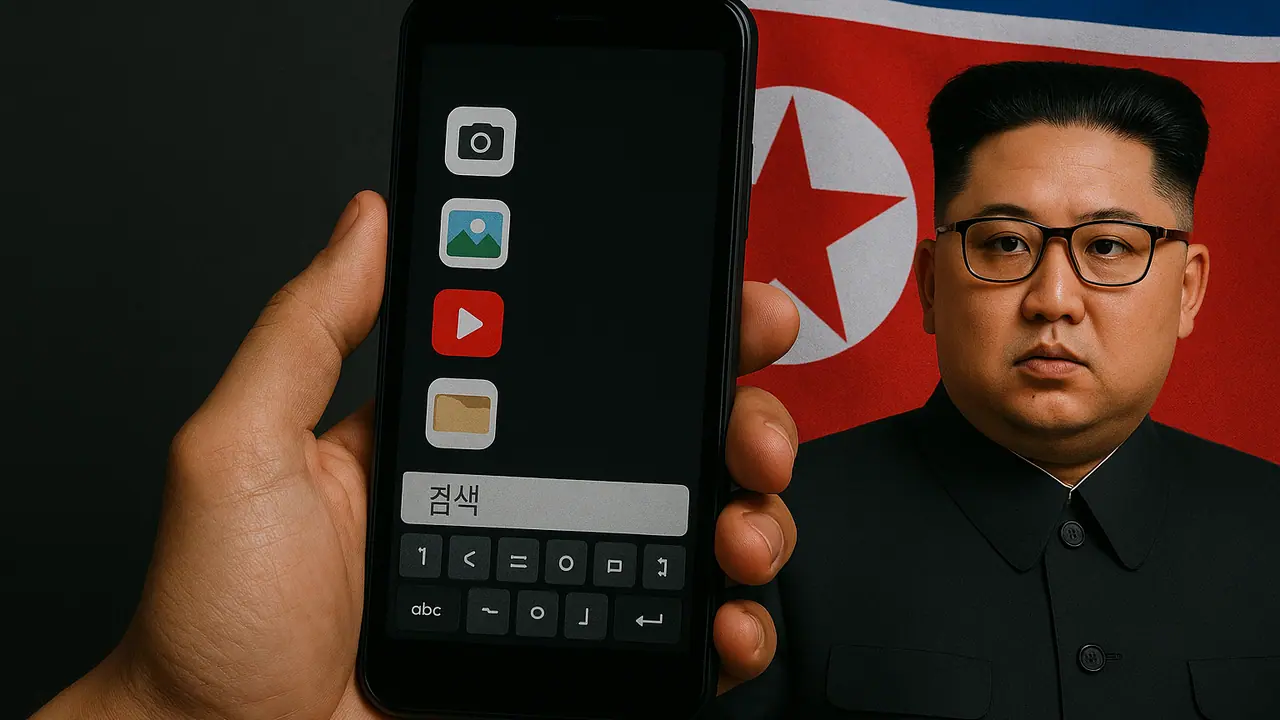A smuggled North Korean smartphone reveals how Kim Jong Un’s regime uses digital surveillance and censorship to crush dissent and control information.
A phone secretly smuggled out of North Korea has exposed the extraordinary lengths Kim Jong Un’s regime takes to maintain absolute control over its citizens. The revelations, brought to light by a BBC investigation, offer a rare glimpse into the Orwellian reality of life inside one of the world's most secretive nations.

North Korean phones' ‘scary’ feature
Although it resembles a standard mobile phone on the outside, the device is anything but ordinary. Developed within North Korea, the handset is part of the country’s digital surveillance apparatus — a key tool in suppressing dissent and controlling the flow of information.
The BBC reports that the modified phone includes a ‘scary’ screenshot feature that automatically takes a snapshot of the screen every five minutes. These images are locked in an inaccessible folder visible only to the authorities.
This chilling feature is designed to track user activity and ensure citizens aren’t consuming or spreading information critical of the regime. The screenshots can be reviewed by the so-called “youth crackdown squads” to detect subversive behaviour.
North Korea's Phone Censorship
Another layer of censorship lies in the phone's software, which actively prevents users from typing or sharing certain South Korean words.
For example, the South Korean word oppa — meaning "big brother" but used colloquially as “boyfriend” — is automatically changed to “comrade.” After this automatic replacement, the phone issues a stark warning: “This word can only be used to describe your siblings.”
Even the term Nampan, the Korean name for South Korea, is changed to puppet state, reflecting Pyongyang's official stance.
Kim Jong Un Controls Information
The phone, smuggled out of North Korea in 2024 by the independent news outlet Daily NK, serves as fresh evidence of how tightly Kim Jong Un controls his people.
Failure to show reverence for the leadership or possession of banned content can lead to severe punishment — including fines, imprisonment, or execution.
Daily NK has previously reported mass arrests in 2021 of people using Chinese-made mobile phones. Those caught were allegedly sent to prison camps and subjected to horrific torture methods including suspension from the ceiling, electric shocks, and sexual violence.
In the same year, a South Korean human rights organisation, the Transitional Justice Working Group, documented 23 public executions in North Korea. Many were directly tied to the consumption or distribution of South Korean media such as K-pop.
One witness told the organisation: “Even when there was fluid leaking from the condemned person’s brain, people were made to stand in line and look at the executed person in the face as a warning message.”
Seven of the executions documented were linked to the viewing or sharing of South Korean cultural content.
North Korea vs South Korea: The Information War
Despite these brutal crackdowns, efforts to penetrate North Korea’s information firewall continue. South Korean groups and broadcasters are waging a secretive “information war” to deliver truth to the North Korean people.
Each night, small broadcasters transmit radio programs across the border on short and medium-wave frequencies. At the same time, thousands of USB sticks and micro-SD cards are smuggled into the country.
These devices contain everything from South Korean dramas and K-pop music to educational materials about democracy and life outside the hermit kingdom.
Sokeel Park, whose organisation Liberty in North Korea helps distribute such content, was quoted in the BBC as saying, “Most recent North Korean defectors and refugees say it was foreign content that motivated them to risk their lives to escape.”
Kim Jong Un’s Cultural Crackdown
In response to the growing influence of South Korean culture, Kim Jong Un has escalated his cultural crackdown. During the pandemic, the regime installed electric fences along the China-North Korea border, making smuggling far more difficult.
In 2020, laws were passed imposing even harsher punishments for the possession or distribution of foreign media — including execution.
By 2023, it became a criminal offence to use South Korean phrases or speak in a South Korean accent. These changes were quickly reflected in the software of domestically produced smartphones to prevent citizens from adopting foreign terminology.
Martyn Williams, a senior fellow at the Washington DC-based Stimson Center and an expert in North Korean technology, was quoted as saying in the BBC, “Smartphones are now part and parcel of the way North Korea tries to indoctrinate people.”
Williams warned that North Korea may be winning the information war: “North Korea is starting to gain the upper hand.”
What’s Banned in North Korea?
North Korea's list of banned items and behaviours is extensive and often brutally enforced:
- Possessing or sharing South Korean films and TV shows
- Using South Korean vocabulary or speaking with a South Korean accent
- Wearing a white wedding dress
- Adopting South Korean-style haircuts
- Dressing in “un-revolutionary” attire, such as jeans or sunglasses
- Making phone calls abroad
- Accessing foreign news or media content
- Owning a shortwave radio
- Criticizing the government or joking about Kim Jong Un


